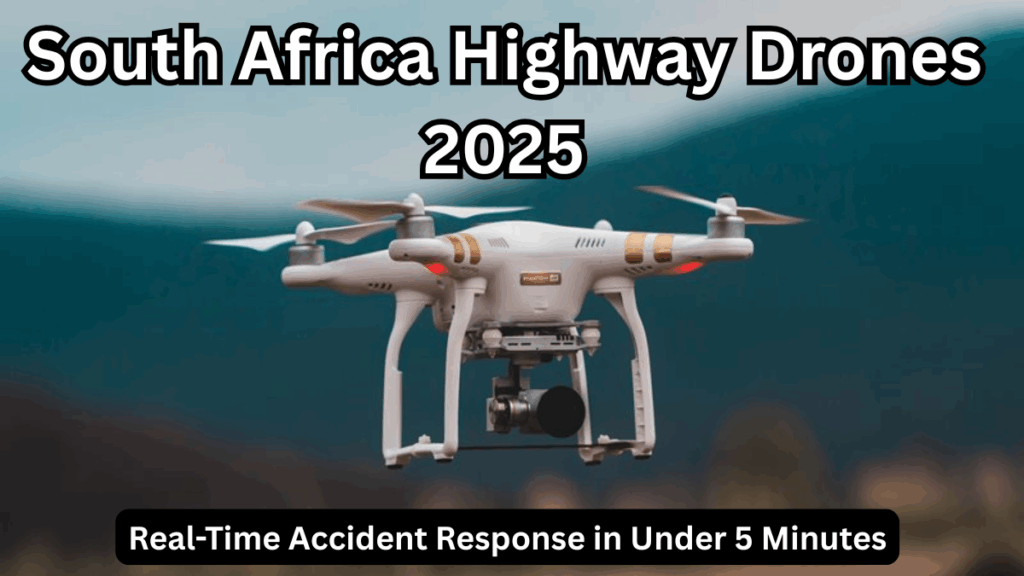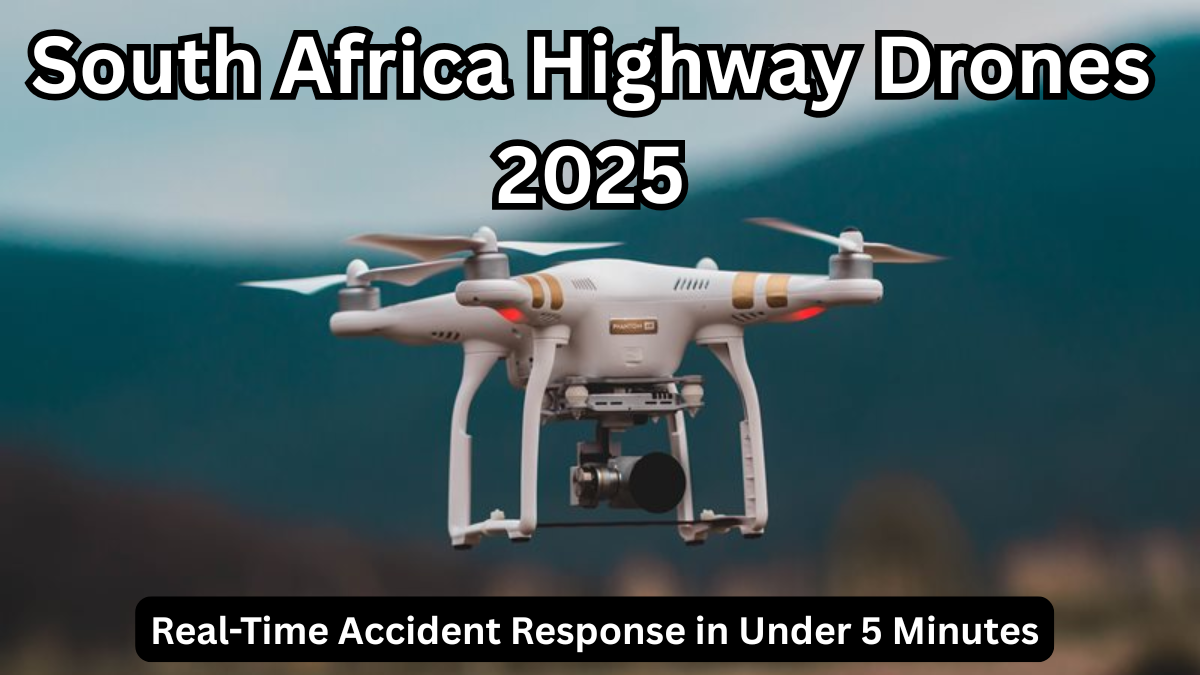South Africa is stepping into a new era of road safety with Highway Drones 2025, a groundbreaking project designed to revolutionize how accidents are managed on highways. With traffic accidents remaining a major challenge, these drones aim to deliver real-time accident response in under 5 minutes, reducing fatalities and ensuring quicker medical assistance.
This innovative move reflects South Africa’s commitment to using technology for public safety and smoother transport systems.

Why Highway Drones 2025 Matter
Every second counts in a road accident. Traditional emergency services often face delays due to traffic congestion, distance, or late reporting. Highway Drones 2025 are designed to bridge this critical gap by:
-
Reaching accident sites within 5 minutes of being triggered
-
Providing live video feeds to emergency response teams
-
Carrying first-aid supplies and communication devices
-
Reducing emergency response times drastically compared to traditional systems
Key Features of Accident Response South Africa’s Drone Project
To understand how impactful this initiative is, here’s a snapshot of what the Accident Response South Africa drone system offers:
| Feature | Details |
|---|---|
| Response Time | Under 5 minutes from activation |
| Camera Systems | Equipped with HD and thermal cameras for day & night monitoring |
| Medical Support | First-aid kits, defibrillators, and communication links |
| Integration | Connected with highway patrol, traffic police, and hospitals |
| AI-Powered Navigation | Routes optimized to avoid obstacles and reach accident scenes faster |
| Real-Time Data Sharing | Live streaming to control centers for accurate decision-making |
Benefits of Highway Drones 2025
The benefits extend beyond faster accident response. They create a safer and more efficient road ecosystem in South Africa:
-
Faster medical support – Victims receive critical help before ambulances arrive
-
Reduced fatalities – Timely action prevents deaths due to delays
-
Smarter traffic management – Helps reroute traffic around accident spots
-
Cost-effective monitoring – Lowers the burden on emergency services
-
Nationwide safety model – Can be expanded beyond highways into urban roads
The Human Impact
Imagine a family traveling late at night on a quiet stretch of highway. An accident occurs, and instead of waiting 20–30 minutes for help, a drone arrives within minutes. It sends live updates to paramedics, provides first-aid tools, and reassures the victims that help is on the way.
This is not just technology—it’s about saving lives, restoring hope, and making South Africa’s highways safer for everyone.
Challenges Ahead
While Highway Drones 2025 offer promising solutions, there are hurdles:
-
Regulatory approvals for drone operations in restricted airspace
-
Technical limitations like weather interference and battery life
-
Public trust in drones handling sensitive medical emergencies
-
Cost of large-scale implementation across thousands of kilometers of highways
Future of Accident Response South Africa
If successful, Accident Response South Africa via drones could become a global benchmark. Expansion plans include:
-
Adding AI accident prediction systems
-
Integrating with autonomous vehicles and smart highways
-
Building regional drone hubs for faster deployment across provinces
FAQs
Q1. What are Highway Drones 2025 in South Africa?
Highway Drones 2025 is an initiative to use drones for real-time accident response on South Africa’s highways, aiming to reach accident sites in under 5 minutes.
Q2. How do these drones help in accident response?
They provide live video feeds, carry medical supplies, and share real-time data with hospitals and emergency teams, ensuring faster treatment.
Q3. Will Highway Drones 2025 replace ambulances?
No. Drones are designed to complement ambulances by providing immediate support until paramedics arrive.
Q4. When will Accident Response South Africa’s drone system be fully functional?
The system is expected to scale gradually in 2025, starting with major highways before expanding nationwide.
Click here to learn more
